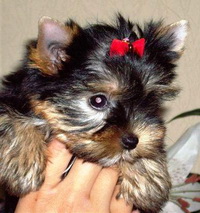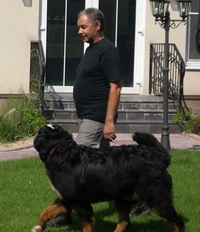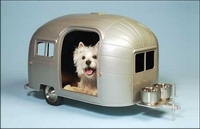Puppy health care
 The responsible breeder is obliged to prepare the bitch for the future maternity by conducting antihelminthic therapy (deworming) and vaccination against infectious diseases a month before the expected estrus. At the same time, born puppies with the first portion of breast milk (colostrum) receive the most important basis of passive clostral immunity — ready-made antibodies that protect them during infancy. Thanks to this natural mechanism, the suckling puppies are safe from viruses and bacteria. If the mothers were not given the necessary vaccinations, the amount of antibodies (antibody titer) in the pups’ blood decreases markedly, which affects the viability of the babies.
The responsible breeder is obliged to prepare the bitch for the future maternity by conducting antihelminthic therapy (deworming) and vaccination against infectious diseases a month before the expected estrus. At the same time, born puppies with the first portion of breast milk (colostrum) receive the most important basis of passive clostral immunity — ready-made antibodies that protect them during infancy. Thanks to this natural mechanism, the suckling puppies are safe from viruses and bacteria. If the mothers were not given the necessary vaccinations, the amount of antibodies (antibody titer) in the pups’ blood decreases markedly, which affects the viability of the babies.
At the age of 4 to 12 weeks, the puppy’s immune system goes through a critical period of development. The number of immune bodies transferred with breast milk (colostrum) is gradually reduced, while its own immune protection is not yet fully formed. In such a vulnerable condition, the baby remains until the full program of preventive vaccinations, which the puppy owner is obliged to do, ends.
The most dangerous diseases of dogs, especially for young animals, are the following diseases: canine distemper virus, parvovirus (the causative agent of parvovirus enteritis), adenovirus (the causative agent of adenovirus infection), canine infection virus hepatitis, parainfluenza virus, leptospirosis (bacterial infection).
Diseases caused by these pathogens, unvaccinated dogs suffer severely, and puppies often die, especially if veterinary care was provided out of time.
Before vaccination, it is necessary to conduct antihelminthic therapy. The presence of intestinal parasites weakens the puppy’s body and makes it difficult to produce antibodies during vaccination. Usually, the first treatment from round worms is carried out by the owner of the mother-bitch when the puppies turn 3 weeks old. The most commonly used pyrantel in the form of a suspension. Usually 10–12 hours after taking Pyrantel, balls of immobilized parasites resembling white hard macaroni are expelled from the intestines of puppies. If such an early deworming was not carried out, then by four weeks of age the infected puppies are clearly stunted, have dull hair, watery eyes, pale gums, swollen belly and various problems with the digestive system.
I advise you to conduct a control antihelminthic therapy during the first days after the puppy in your home. Do this even if the breeder has reported early deworming. It is better to use a broad-spectrum anthelmintic drugs: drontal plus, kanikantel, praziquatel plus, pratel, atazol. One tablet is designed for 10 kg weight of the dog, so be sure to weigh your pet and calculate the dose of the drug. If a lot of dead parasites are found in the puppy’s feces, then repeat the procedure of their exile in 10–12 days. Vaccination is carried out a week after deworming.
The introduction of a vaccine (a weakened pathogen) causes the immune response of the animal. Previously it was thought that vaccination could trigger a disease, and therefore dangerous for a little puppy. Indeed, 20–30 years ago, vaccination was often accompanied by a painful condition of the dog during the development of immunity. The dog became lethargic, drowsy, refused to feed and was heated for several days. Sometimes these consequences became serious and required urgent intervention by a veterinarian. To reduce the load on the baby’s body, it was recommended to make monovalent vaccinations, that is, to use vaccines from only one pathogen. At the same time, the entire vaccination course was often stretched for 3 months.
Caring for a puppy’s health At the present stage of development of veterinary medicine, highly effective vaccines have been created that include from 2 to 12 valencies and provide reliable protection for dogs against a complex of the most dangerous viral and bacterial infections. Antigens, which are in the vaccine, activate a number of protective mechanisms of the dog’s body, which creates a stable immunity with the production of specific antibodies. Due to the special selection and genetic selection of vaccine strains, the most complete and long-lasting immunity is registered in combination with the low allergenicity of the drug. Modern complex vaccines have a mild effect on the animal organism and do not have a negative immunosuspression effect, which was observed earlier in the post-vaccination period, especially in puppies.
The following vaccines from well-known manufacturers of veterinary drugs can be recommended to dog owners: Vangard-5L from Pfizer; Duramune from Fort Dodge Animal Health; “Nobivac DHPPI” + “Nobivac Lepto” from the company “Intervet”.
Sometimes they also use Russian vaccines “Multikan” or “Biovac”.
All vaccines are administered to clinically healthy animals. Store vaccines in the refrigerator at a temperature not higher than 8 ° C; freezing is not permissible. A week before the proposed vaccination, watch the puppy, analyzing his health.



